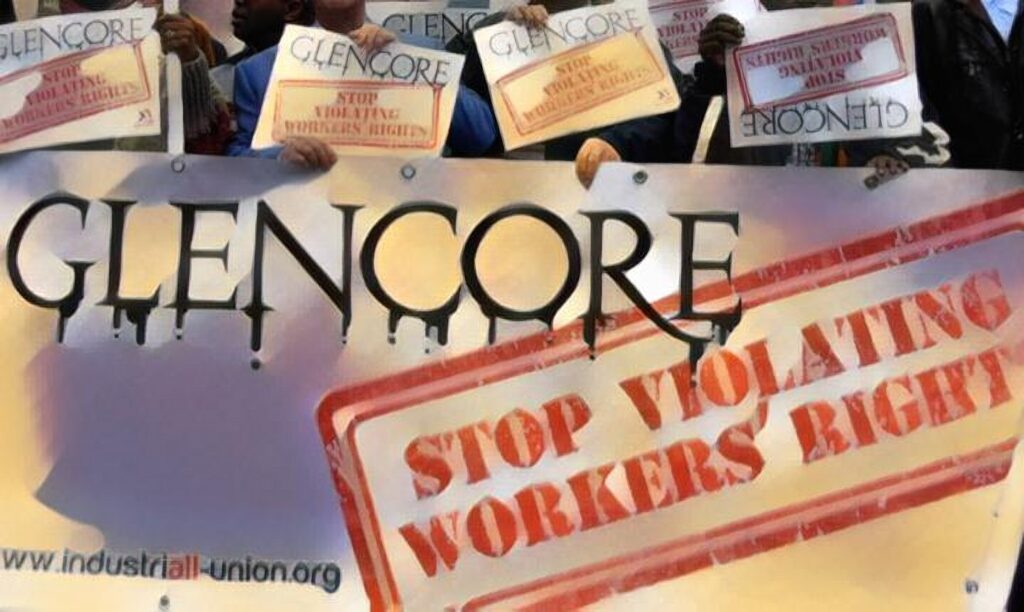24 May, 2023IndustriALL Global Union affiliate, Travailleurs Unis Des Mines Métallurgie, Energie, Chimie et Autres Industries (TUMEC), that organizes workers at two Glencore mines in Kolwezi, Kamoto Copper Company (KCC) and Mutanda Mining (Mumi), says the Swiss commodity trader and mining multinational is short-changing workers by paying them different wages and benefits for the same work.
The pay gaps were exposed when Mutanda Mining was mothballed in November 2019 when Glencore cited low cobalt prices and increased cost of production.
More than 500 workers were transferred to KCC and signed new contracts which moved them up to higher job categories in which they received higher wages, US$50 for child school fees per month, payment of holiday allowances and other benefits.
However, when Mumi was reopened in 2022, most of the workers transferred back to the mine lost the benefits they enjoyed at KCC.
The workers who remained at Mumi during the closure mainly from the cobalt section, maintenance department, and security section, did not get any bonuses as per the labour laws. TUMEC wants workers who remained at work during the limited operations that took place at Mumi that involve recirculation to decrease uranium radiation must be paid bonuses and refuses to pay risk insurance for workers in the radiation sections.
The union says MUMI continues to ignore the collective bargaining agreement, and is non-compliant with labour laws on overtime, holiday pay, and wage calculations.
An in-depth 2021 report by RAID and CAJJ found that Glencore and other multinational mining companies operating in the DRC often use subcontractors to reduce labour costs, to limit their legal liabilities and to prevent workers from joining unions. Further, management intimidates outspoken workers.
There are concerns over inadequate personal protective equipment, and health and safety standards that are continuously ignored by Glencore. The workers say the maize flour that they are given by the mine as per long standing agreement with management is of poor quality.
“Since a new manager came, the maize flour that we are now getting from the mine is junk when compared to what we are accustomed to,” said some of the workers.
“The hands-off management style, with local managers encouraged to make operational decisions without reference to a global standard, is an attempt by Glencore to shield itself from criticism. But this means the company has no control over negative externalities. Rather than addressing these issues, Glencore hides behind the obscurity of long and complex supply chains and attempts to change the narrative by doing damage control after violations are exposed. And it is the people in and around the company’s operations that pay the price,”
says Glen Mpufane, IndustriALL mining director.
